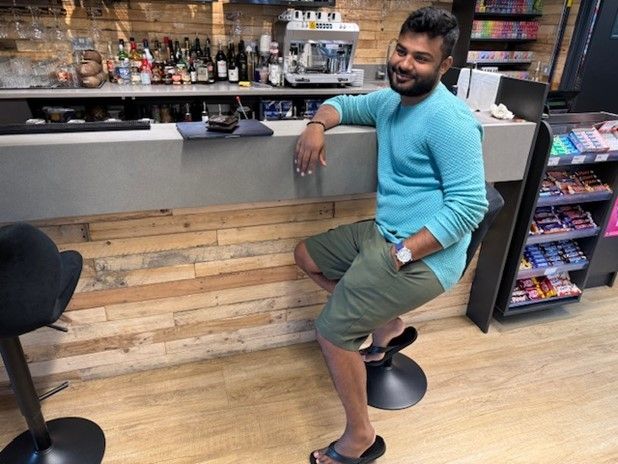The evening air buzzes with conversation as a group of women settle into comfortable seats, wine glasses in hand. Outside, the aroma of street food wafts in from a colourful van parked strategically in the small car park. Inside, bottles of carefully curated wines and craft beers – from prestigious vineyards to local Oxfordshire breweries – line the walls. This isn't your typical wine bar, nor is it merely an off-licence. It's the hybrid concept that earned Pradeep Thangaraj the Off Licence of the Year Award at the 2024 Asian Trader Awards for his flagship Wine Rack store in Bicester, Oxford.
But Pradeep's path to becoming an award-winning retailer started thousands of miles away, with roots quite literally in the soil.
"I am from south India, Coimbatore," Pradeep explains, as he recalls his unlikely journey. Unlike many international students who plot elaborate paths to UK education, his route was remarkably direct. "When I finished my under graduation, my major was agriculture and environmental studies, I was a university topper."
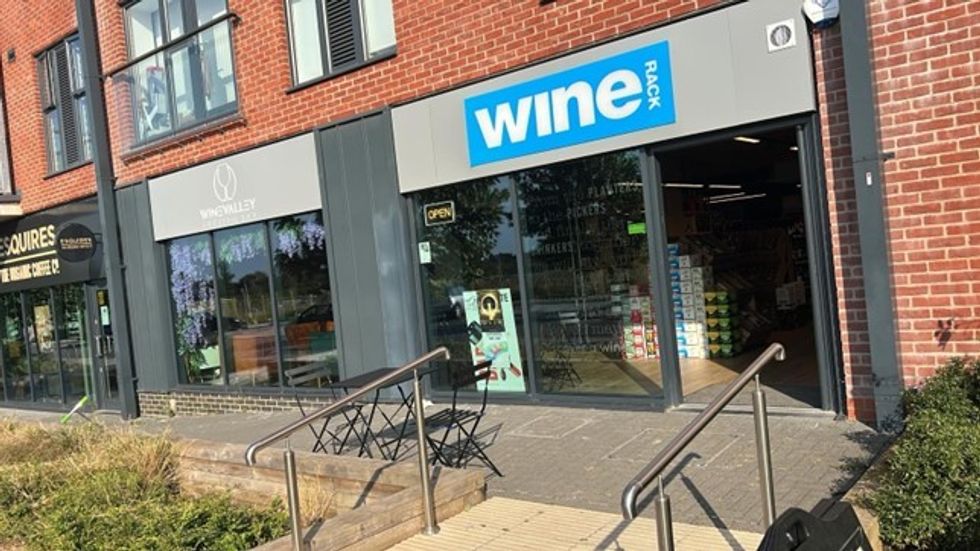
That academic distinction opened doors. His university recommended him for international exchange programmes across Europe, and Pradeep chose the University of Wales in Bangor (now Bangor University) to continue his studies.
The pivot from agriculture to retail might seem dramatic, but Pradeep sees a connecting thread. "The good thing about studying agriculture is you study everything, unlike other major degrees where you just study the core subject," he reflects. "We study economics, we study finance, we study management, international trade, tariffs. We study the entire structure, right from the place where the plant grows all the way to the place where it ends up on someone's plate ... It is a kind of very broad spectrum."
This breadth would prove valuable in the years to come, though he didn't realise it at the time. "Back then, we can't think much about it, but then down the line in your life, you realise that was a great degree to study, because you learn a bit of everything."
A chance encounter
After university, Pradeep was hired by JD Sports, where he worked for nearly seven years. His life might have continued along this predictable corporate trajectory if not for a serendipitous meeting.
“I travel home (to India) quite often, at least once or twice a year," Pradeep says. On one such journey, fate placed him next to a French businessman who split his time between the UK and France. During their 12-hour flight, conversation flowed as freely as the wine Pradeep would later sell.
"We've been talking about so many things. And I told him what I do, he told me what he does. And at one point he said, why don't you just stop working for somebody else and get into the wine industry."
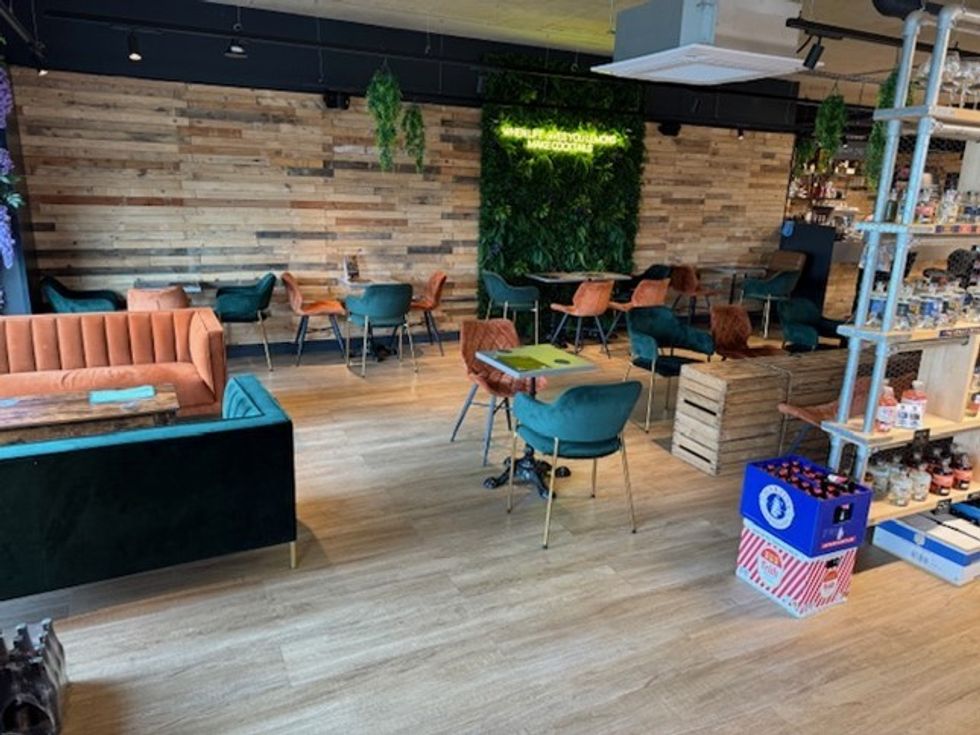
That airborne suggestion planted a seed. While still working at JD, Pradeep began learning everything he could about wines. His new mentor was connected to suppliers for Bargain Booze, which along with Wine Rack would later become part of the Bestway Group. When some stores began closing due to financial troubles, an opportunity emerged.
"This guy said, there is a nice Wine Rack store near Cardiff. Why don't you take it and then you can operate it."
The decision required courage. Pradeep quit his stable job and took over the store in Caldicot. Success came quickly, and he soon acquired a second store in nearby Chepstow. But his ambition didn't stop there.
"Both the stores were a Bargain Booze rather than a Wine Rack, and as I always wanted to open a Wine Rack store, I was looking for an empty unit," he explains. In 2023, he found the perfect location in Bicester and opened what would become his award-winning store.
Reviving the rundown
When describing the challenges of taking over struggling stores, Pradeep reveals a simple philosophy that would become his hallmark: consistent execution of retail fundamentals.
"As soon as I took the store, I realised it's been going downhill for a long time, and it's purely down to the operational situation around the store," he says of his first acquisition. "It was a staff-run corporate store. They never opened the store on time. They open as it pleases them. They close as it pleases them. Inside, merchandising was absolutely horrendous."
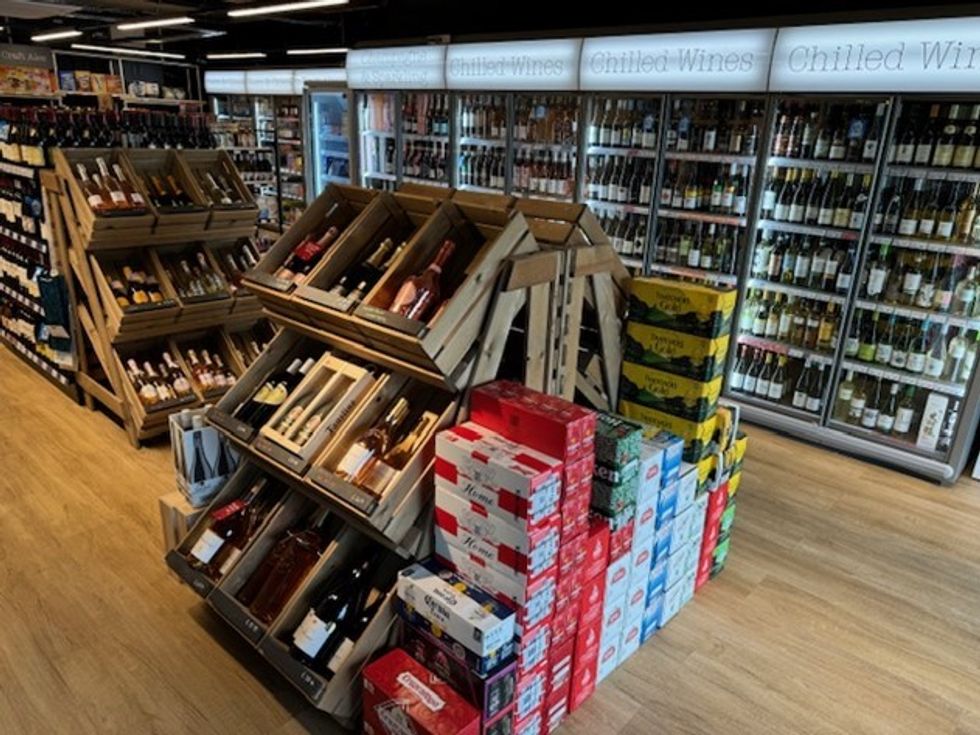
His turnaround strategy wasn't revolutionary, but it was rigorous. "We didn't do much. As soon as we put things right, it started picking up automatically," he says with characteristic modesty. "We basically open at the opening time and close on the closing time. We stick with them very religiously. On top of it, we'll make sure the shop is completely and properly merchandised, kept it clean and tidy all the time."
In the tight-knit community where his first store operated, word travelled fast. "Because it's a kind of a rural environment – it's a little bit bigger than a village, but it's smaller than a town, so it's a one high street – everybody knows what happens," he explains. "As soon as they realised that the store had been taken over by different management and was operating properly, we started getting customers back into the store very easily."
Innovating through hybrid
The Bicester store represents an evolution of his retail vision. "It's basically a wine boutique," he explains. "I got pretty much all the wines, spirits and beers. The only difference is I have a bar attached to it."
This hybrid approach creates unique customer experiences impossible in traditional off-licences or bars. "People can choose any bottle of wine from the shop floor to come and sit in and drink," he notes. Customers pay the retail price plus a £4.99 corkage fee – a model that benefits both the business and the consumer.
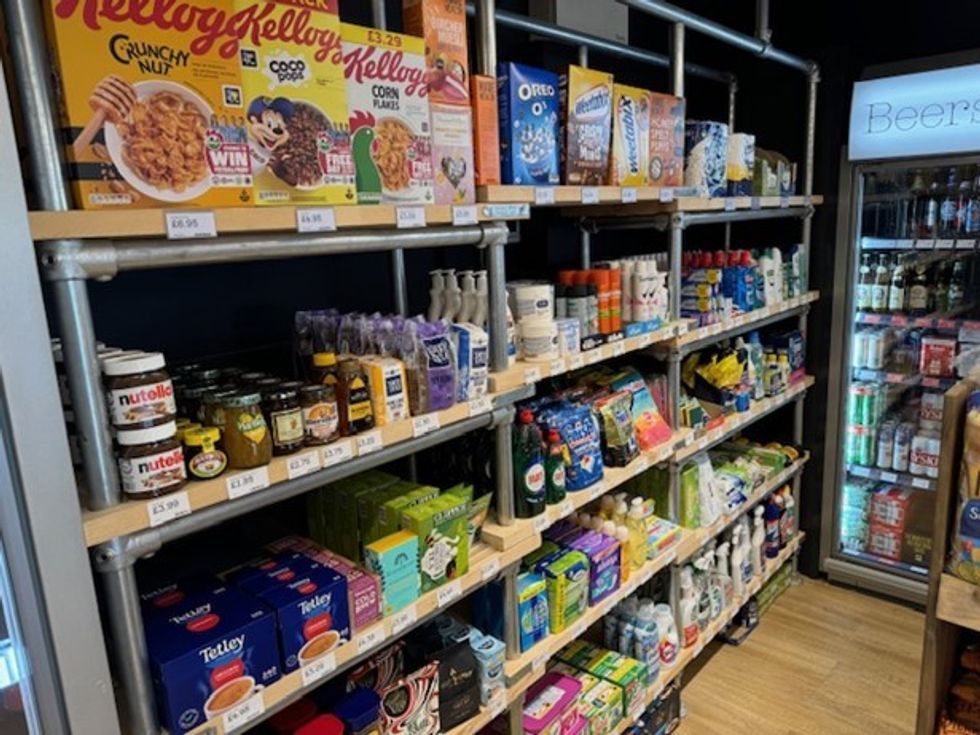
The value proposition is compelling. Customers can also choose beers, spirits and cocktails to drink in, paying menu prices that are highly competitive compared to other local establishments. "In our store we can offer a full bottle of Villa Maria Clifford Sauvignon Blanc for £9.99 rather than nearby bars where you pay the same amount – or more – for a glass," Pradeep notes, highlighting the dramatic price difference his model enables.
"When you go to a restaurant, if you have a wine and if you like it, there's no other way – unless you buy more and drink it. You can't take it home," Pradeep points out. "But the good thing here is, if you are drinking a wine and if you like it, you can just go to the shelf and pick two more bottles and then take it home."
The bar doesn't just offer wine. "In terms of beers, I have loads of craft beers and ales from all over the world," he says. "These are all unique lines. It's not something you can get in everywhere."
Community at the core
Despite the success, Pradeep is refreshingly honest about the financial realities of his business. "I am just breaking even. I mean, I've been there for two years," he confesses about his Bicester store. Located in Ambrosden, about three miles southwest of Bicester proper, the location presents challenges.
"The biggest mistake I did with the store is, it is a store for a town, not for residential area. I am in a residential area which is kind of tucked away from Bicester," he admits. Yet the local community has embraced the concept. "Without their support, it would have been an absolute nightmare, trust me."
The demographics of his clientele might surprise some. "Almost 90 per cent of my drinks trade comes from women, because my setup is more subtle than a bar," he notes. This has transformed the space into something more than just a retail outlet. "It is acting like a social hub. The local community, they are absolutely fantastic."
Labour of love
Managing the complex supply chain of his unique business model requires dedication. Unlike typical off-licences that might deal with two or three suppliers, Pradeep works with more than 20, many of them small, local producers.
"It does take a lot of time," he acknowledges. "You need a little bit of love. Genuinely, you need a little bit of love and patience to run a place like this."
He illustrates the challenges with an example: "There is a brewery called The Little Ox. They supply six different canned beers for me, craft beers. All their lines are gluten-free and vegan. The problem is I can't ask them for one particular beer, because their beer comes in a 12-pack case. Sometimes a couple of lines will completely sell out, and that's what everybody wants. But I still left with four more lines which are not selling at all."
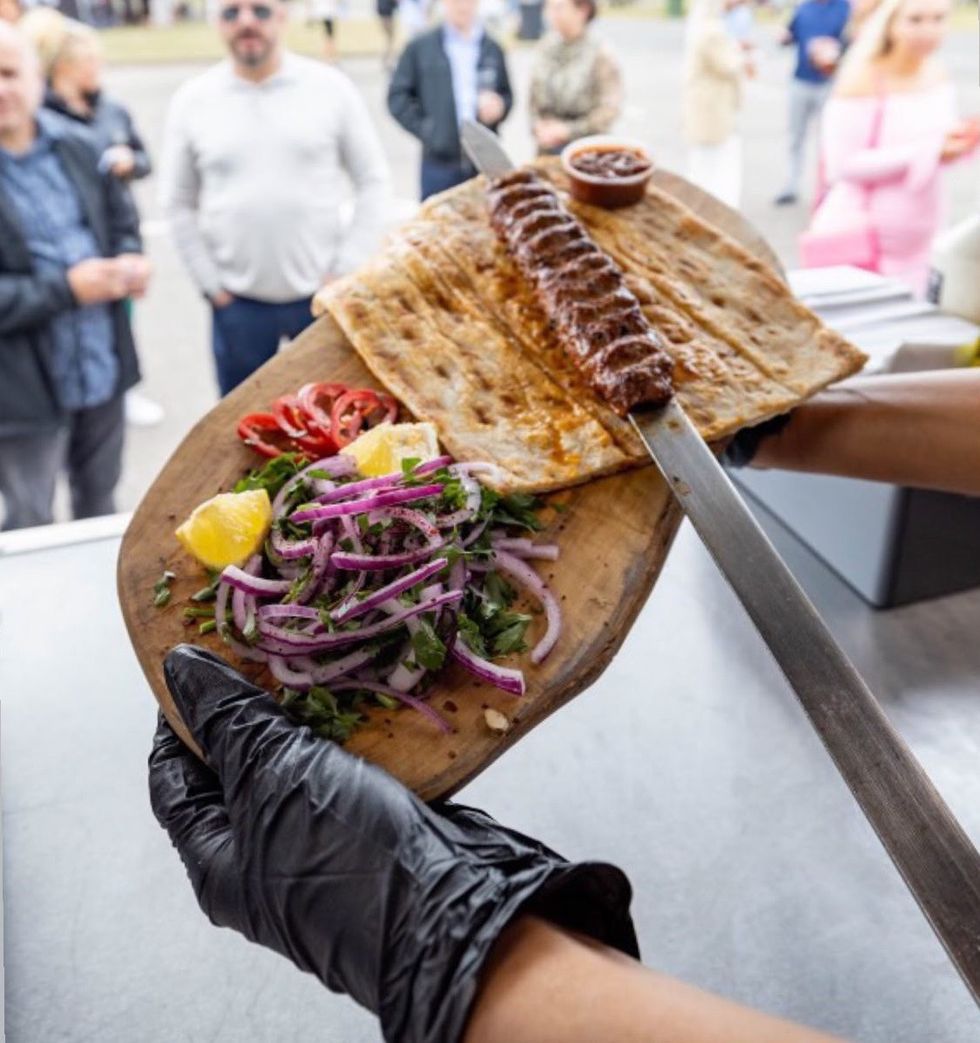
For those who might want to replicate his success, Pradeep offers a sobering reality check. "If someone wants to just replicate this place, I will literally tell them everything, but they still go out there, and when they try it, it'll exhaust them. There is no shortcut. If you want to involve a lot of local breweries, and if you want to run a store in a concept way, this is the only option you have."
Pradeep's creativity extends beyond his hybrid retail model. Every Friday and Saturday evening, food vans park outside his store, creating a street food festival atmosphere.
"I contacted loads of local food vans, and now I have a chart for the whole year," he explains. "Last year was my first year, so I was arranging a bit like month by month, but by the end of November, I know all these people, so I did the calendar for the whole year this year."
This arrangement enhances customer experience without requiring investment in kitchen facilities. "Customers can order their food, and they can bring it inside. While they're drinking, they can have their food," he explains. "Because they serve the products in takeaway containers or trays, people can throw them into the bin. We don't have any cutlery or any kitchen appliances to manage, maintain or clean."
Future in a bottle
Looking ahead, Pradeep sees potential for growth as the residential area expands. "At the moment, they have 700 houses, and the estate is designated for 2000 houses," he notes.
He also continues to stock special wines that can't be found elsewhere – premium bottles that must be purchased in bond months before delivery. "For example, there is a wine called Château Talbot Saint-Julien, I buy in November or December in bond for next year," he explains. "If I buy a bond for six bottles this November, they will deliver the bottles somewhere between August to September next year."
For this agricultural student turned wine retailer, the journey has been as complex and satisfying as the finest vintage. And like a truly great wine, Pradeep Thangaraj's story of retail excellence continues to develop new dimensions with time.

